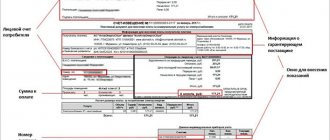Contents of the ADS work
The emergency dispatch service daily monitors the operation of the building's in-house engineering systems and the quality of utility resources at the interface between the elements of in-house engineering systems and centralized utility networks.
ADS is ready to register and monitor the implementation of applications from owners and users of premises in apartment buildings 24 hours a day. Owners and users of premises in an apartment building contact the emergency service if something goes wrong with:
- provision of public services,
- maintenance of common property,
- provision of services and performance of work on the maintenance and repair of common property.
The emergency service eliminates malfunctions and damage to in-house engineering systems, takes prompt measures to ensure the safety of citizens in the event of accidents or threats of their occurrence.
Owners and users of premises in apartment buildings can contact the ADS with applications for the fulfillment of other obligations of the management company, homeowners association or housing cooperative.
Organization of decent and according to the new rules emergency dispatch service in the house is the task of management organizations, homeowners' associations and residential complexes.
What to do after a heat supply emergency has been eliminated
General provisions
1.1. The manager of the housing maintenance area (hereinafter referred to as the housing department) belongs to the category of specialists and is directly subordinate to [indicate the name of the manager’s position].
1.2. A person with [enter the required] education and work experience at housing and communal services enterprises for at least [value] years is appointed to the position of housing and communal services manager.
1.3. The housing department dispatcher is appointed and dismissed by order of the head of [name of organization].
Important to Know: Responsibilities of Patrol Officials
1.4. In his activities, the housing department manager is guided by:
— internal labor regulations, labor protection and safety regulations;
- this job description.
1.5. The housing department manager must know:
— technology for providing housing and communal services, repair work;
— standards for services for the operation and repair of housing for the population;
— plans and diagrams of engineering communications of the serviced area;
— information characterizing energy supply, water supply, sewerage, heating, ventilation and air conditioning systems;
— instructions for operating automated dispatch and process control systems and control systems;
— instructions for the prevention and elimination of technological violations;
— technology and organization of repair work, maintenance of residential buildings, time standards for repairs of residential buildings in the serviced area;
— the procedure for interaction with emergency repair units;
— standards of compliance of housing and communal services;
— emergency phone numbers;
— rules and regulations of labor protection, safety precautions, industrial sanitation and fire protection;
— internal labor regulations;
— legislative and regulatory legal acts, administrative and regulatory materials on issues of production planning and operational management of the activities of housing organizations.
1.6. During the absence of the housing department manager, his duties are performed by a person appointed in the prescribed manner, who acquires the appropriate rights and is responsible for the proper performance of the duties assigned to him.
1.7. Professionally important qualities: [fill in as appropriate].
Time frame for eliminating accidents
Currently, the deadlines for eliminating accidents are sparsely stipulated in RF Regulation No. 416. It is said that the ADS must immediately eliminate blockages in the in-house utility drainage system and garbage chutes.
There are no deadlines for eliminating emergency damage to in-house engineering systems for cold and hot water supply, drainage and in-house heating and power supply systems.
Legislators decided that since the teleport had not yet been invented, the time frame for eliminating accidents needed to be detailed. According to the new rules, which will come into force on March 1, 2020, the emergency dispatch service must answer a call from the owner or user of the premises in an apartment building within 5 minutes. You can't make a person wait any longer.
If you don’t have time to answer, call back within 10 minutes of receiving the call. Or, consider leaving a voice or email message. The ADS must consider such a message within 10 minutes of receipt.
Half an hour from the moment of registration of the application is allocated for localizing accidents on in-house hot water supply and hot water supply systems, water disposal, heating and electricity supply. You can spend two hours from the moment of registering the application to eliminate blockages in the in-house sewerage system.
But the accident itself needs to be eliminated no longer than 3 days from the date of the emergency damage. Moreover, in the event of such accidents, the ADS ensures the supply of utilities within a time frame that does not violate the established duration of interruptions in the provision of utilities.
In addition, in case of emergency damage to the in-house utility systems of hot water supply and hot water supply, water disposal and heating, the ADS must inform the local government body on whose territory the house is located, the nature of the damage and the time frame for its repair.
The blockage of the garbage chute is eliminated within 2 hours after registration of the application, but not earlier than 8 hours and no later than 23 hours if applications are accepted around the clock.
After registering the application, within half an hour you need to estimate the deadline for its completion and inform the applicant about it.
The time frame for eliminating minor faults is agreed upon with the applicants. It could be even 2 o’clock in the morning, you still need to leave, because the ADS works around the clock.
Job description of housing and communal services manager
- The job description of a management company dispatcher includes the responsibility to accept requests for various troubleshooting actions.
validity of qualification certificates;
- rules for the functioning of the organization’s personnel service, training centers;
- the procedure for preparing documentation for training or testing the professional competence of employees.
How to challenge a fine for violating the rules for the maintenance and routine repair of apartment buildings (part 1)
In addition to compliance with RF PP No. 416 and RF PP No. 1090, the service allows you to switch from paper media and Excel files to a modern electronic format, simplify work with requests from residents and third parties, is integrated with IP telephony and GIS housing and communal services, records telephone conversations and supervises the work of field employees (plumbers, electricians, foremen).
carries out control over the timeliness of work on flushing pipes and checking the tightness of the system before the start of the heating season in accordance with the deadlines fixed in the plans.
This is important to know: Job Description Scheme
Responsibility
The person holding this position is responsible for:
- transmission of false information to the population;
- orders given to foremen that were obviously incorrect;
- their actions that are contrary to the legislative framework and job description;
- for actions that resulted in material damage to equipment and other labor tools, as well as all types of objects belonging to the housing and communal services sector.
Download the job description for housing and communal services dispatch service operator
Registration of applications
From March 1, 2020, emergency dispatch services will be able to choose how to register requests:
- in the order log,
- in electronic form in the application accounting system.
In both cases, using a recording of a telephone conversation.
The procedure for receiving an application is as follows:
- Find out the reason and nature of the appeal.
- Decide whether assistance from emergency repair services will be needed.
- Record the decision made in the application log. If the accounting log is kept in the Housing and Communal Services GIS, place the application data there.
- Inform the applicant of the registration number of the application, deadlines for completion and a list of necessary activities.
- Organize the execution of the received application within the appropriate time frame.
How to disclose information about restrictions and interruptions in the provision of CG
Responsibility
4.1. The housing department manager is responsible for:
— failure to perform (improper performance) of one’s job duties as provided for in this job description, within the limits determined by the current labor legislation of the Russian Federation;
This is important to know: Sports instructor: job responsibilities
- offenses committed in the course of carrying out their activities within the limits determined by the current administrative, criminal and civil legislation of the Russian Federation;
— causing material damage within the limits determined by the current labor, criminal and civil legislation of the Russian Federation.
The job description has been developed in accordance with [name, number and date of document].
Site visit
Emergency dispatch service employees take with them on the trip the necessary equipment and materials, an official identification card, disposable shoe covers and an identification sign (badge, patch on clothing), which will indicate the name of the organization, last name, first name and patronymic, and professional specialization.
If, in order to process an application, an ADS employee needs to get into a room in an apartment building, the emergency dispatch service warns the owner or user of the room in advance and reports:
- planned date and time for the start of execution of the application,
- reasons for needing access,
- Full name of the employee who will process the application.
To verify that the application has been processed, the ADS will ask the contractor to photograph the result and will periodically interview the owners and users of the premises in the apartment building. Everything is serious, the results of the control will be entered into the application log or GIS Housing and Communal Services, if applications are recorded there.
Dispatch service
So, from March 1, 2020, the “latest” amendments introduced by Decree of the Government of the Russian Federation of September 13, 2018 No. 1090 come into force. They relate to the improper operation of emergency dispatch services of management organizations , which will be considered a gross violation of licensing requirements. The amount of the fine for gross violations of licensing requirements has not yet been officially approved, but the State Duma in the first reading adopted a bill that supplements Article 14.1.3 of the Code of Administrative Offenses with a clause according to which the fine will be:
for an official of a management organization - from 150 to 250 thousand rubles;
for a legal entity – from 300 to 350 thousand rubles.
Employees of management organizations have an incentive to read this article to the end
Since September 26, 2020, a new edition of the Rules for the implementation of activities for the management of apartment buildings, approved by Decree of the Government of the Russian Federation of May 15, 2013 No. 416 (hereinafter referred to as Rules 416), has been in effect.
1. How can I now receive calls to the emergency dispatch service?
Have you seen the image of the Hindu deity Shiva? No, well, look... This is what a true dispatcher of the emergency dispatch service of the Criminal Code should now look like.
According to clause 13 of Rules 416, the dispatcher must answer the call from the owner of the premises within 5 minutes.
If the dispatcher did not have time to pick up the phone (he was eating, sleeping, talking with other residents) within 5 minutes, then:
the dispatcher must call back within 10 minutes from the moment the caller hangs up;
the owner of the premises should be automatically asked to leave a voice message, which should be reviewed within 10 minutes from the moment of receipt.
That is, the telephony of the management organization must automatically track the time of all calls and automatically display all voice messages. From a technical point of view, a regular phone cannot do this (and it also cannot record telephone conversations, but more on that later).
If the owner of the premises hangs up without waiting for an answer (before 5 minutes), then the system should show this to the dispatcher, since administrative liability in this case can be avoided.
This is interesting: Senior storekeeper job description
The best option in this case is to use IP telephony and if, for example, we compare telecom operators (we don’t take Rostelecom, as practice has shown, its functionality is narrower than that of other companies), then the majority offers all of the above in a basic package of services.
We have integrated IP telephony in our CRM system into dozens of companies throughout the Russian Federation and I know what I am writing about.
2. Is the response time to requests now tied to the time of the call?
In paragraph 13 of Rule 416 it is directly stated that emergency dispatch services are obliged to perform:
localization of emergency damage to in-house engineering systems of cold and hot water supply, drainage and in-house heating and power supply systems no more than half an hour from the moment of registration of the application;
elimination of blockages in the in-house sewerage system within two hours from the moment of registration of the application;
elimination of blockages in garbage chutes inside apartment buildings within 2 hours from the moment of registration of the application, but no earlier than 8 o’clock and no later than 23 o’clock when applications are accepted around the clock (that is, it is not necessary to clean garbage chutes at night);
supply of utilities in case of emergency damage to the in-house engineering systems of cold and hot water supply, sewerage and in-house heating and power supply systems within a time frame that does not violate the duration of interruptions in the provision of utility services established by the housing legislation of the Russian Federation;
elimination of emergency damage to in-house engineering systems of cold and hot water supply, sewerage and in-house heating and power supply systems within no more than 3 days from the date of emergency damage.
Based on the above response times (they were invented by amateurs, for whom “riser” and “bed” are physiological processes, and not parts of engineering systems), the countdown of the response period should be activated automatically as soon as an application from the owner (consumer) is accepted, and this again, manual tracking will be problematic.
3. Can the function of emergency dispatch service be performed by a contractor?
Both in the “old” and “new” editions, the management organization is obliged to organize the activities of the emergency dispatch service (hereinafter referred to as ADS), which can either be its own, or the ADS function can be performed by a contractor (clause 9 of Rules 416).
Please note that in a situation where the contractor improperly performs the ADS function, the management organization will in any case be held administratively liable. In turn, the management organization may subsequently demand compensation from the contractor for the amount of the fine if the contractor, in accordance with the terms of the contract, is obliged to comply with the requirements for the work of the ADS.
4. In what mode should the ADS operate?
According to clause 10 of Rules 416, the ADS must ensure round-the-clock registration of applications from owners and users of premises in the apartment building on “issues related to the provision of utilities, the maintenance of common property in an apartment building, the provision of services and the performance of work on the maintenance and repair of common property in an apartment building, as well as on the elimination of malfunctions and damage to in-house engineering systems and the fulfillment of other obligations of the management organization stipulated by the management agreement.
In fact, this means that it is a fairly common situation when ADS works only during working hours, and in the evening calls are received on the mobile phone (which may be dead) of an individual employee (who may be sleeping), which can lead to claims and quite significant fines.
In addition, according to clause 17 of Rules 416, registration in the register of residents’ applications must be carried out using a recording of a telephone conversation.
If you have an “evening” dispatcher on your mobile phone, then automatically forward calls after a certain time from your “landline” number to the employee’s mobile phone. Then the call will definitely be recorded in the database. In our CRM system “Kvartira.Burmistr.Ru” this is implemented through integration with telecom operators.
5. How long should telephone conversation records be kept?
Rule 416 does not provide a direct answer to this question, so let’s start from the maximum risks for the management organization.
Let’s not take a situation where the management organization believed in the God of housing and communal services and “gave up” on the requirements invented by the gifted team of A.V. Chibis. In this case, the risks of being held accountable for the lack of recordings of telephone conversations are enormous and, if you are not brought to trial today, then your time has not yet come.
Let's consider a situation where March 1, 2020 has arrived, and the management organization keeps paper logs in the old fashioned way and does not know about any recording of telephone conversations. According to clause 1 of Article 4.5 of the Code of Administrative Offenses of the Russian Federation, a decision in a case of an administrative offense cannot be made after two months (in a case of an administrative offense considered by a judge - after three months) from the date of the administrative offense.
6. How to notify local authorities about emergency situations on the common property of apartment buildings?
An additional requirement that will appear from March 1, 2020 is the obligation of the emergency dispatch service to inform the local government about emergency damage to the in-house engineering systems of cold and hot water supply, sewerage and in-house heating systems, as well as the nature of the damage and the planned time frame for its elimination (p .13 of Rule 416).
Traditionally, officials forgot to indicate the timing of notification to local self-government bodies and methods of such notification.
Let's look for the optimal and most importantly simple way to notify officials, and for this we open Part 1 of Art. 10 of the Federal Law of 02/09/2009 No. 8-FZ “On ensuring access to information about the activities of state bodies and local governments.” There we see that “local government bodies use the Internet to post information about their activities, where they create official websites indicating email addresses to which the user can send a request and receive the requested information.”
That is, information on each emergency situation can be safely sent to the local self-government body by email, and what they will do with it there does not concern the management organization.
In our system, we have implemented automatic sending of emergency requests from the dispatch log to the e-mail address of the local self-government body, which is entered into the CRM system by the user. That is, the dispatcher and the head of the management organization do not need to worry at all about the lack of extremely necessary information from representatives of local self-government bodies, and the principle “fire and forget” applies here.
7. In what form should dispatch logs be kept in the ADS?
It is correct to write not “ADS dispatch logs”, but as written in paragraph 17 of Rules 416 “a log of applications for owners and users of premises in apartment buildings”, but this is too long and I will write “a log of applications”.
Registration of applications must be carried out in the application register or in an automated system for recording such applications.
In the text of the previous paragraph, I specifically highlighted the conjunction “or”, which makes it possible to keep logs of applications in the old-fashioned way in paper form, without using miracles of engineering in the form of computers, which are hated by many dispatchers. Moreover, the same paragraph 17 of Rule 416 directly states that “the application logbook must be laced, numbered and sealed with the seal of the emergency dispatch service.”
This is interesting: How to fill out RSV for 2020 instructions
But let's dig deeper.
To do this, we open clause “e” clause 4(1) of the Regulations on licensing business activities for the management of apartment buildings, approved by Decree of the Government of the Russian Federation of October 28, 2014 No. 1110 and we see that the refusal to transfer technical documentation to apartment buildings is classified as gross violations of licensing requirements, the amount of the fine for which I cited at the very beginning of the article.
What does the log of residents’ requests and technical documentation have to do with it, you ask.
In order to make sure that everything is in order with my brain activity, we will open the Decree of the State Construction Committee of the Russian Federation dated September 27, 2003 No. 170 “On approval of the Rules and Standards for the Technical Operation of the Housing Stock,” which contains a “wonderful” paragraph 1.5.3, according to which includes logs of residents' requests as part of the technical documentation for long-term storage.
Taking into account the fact that, according to clause 3.1 of Article 161 of the Housing Code of the Russian Federation, upon termination of management of an apartment building by a management organization (HOA), only three working days are given to transfer technical documentation to the apartment building, and the vast majority of management organizations and HOAs keep application logs in paper form, then in order not to receive a fine for gross violation of licensing requirements you will have to:
Make extracts from the “general” journal of applications, which previously displayed applications for all houses in the management in terms of applications that fell on the house that “left” the management, lace it up, number it and certify all this with the seal of the organization.
Switch in advance to automated application recording systems, which, although not mandatory, allow you to generate any logs for any time. Thus, the system we developed for automating the work of management companies and homeowners associations (at the time of writing the system is used by more than 700 companies) allows you to upload data in the context of apartment buildings, periods, types of work, performers for work and more than 20 more criteria with one click of the mouse. When leaving home, all you have to do is print out the unloading, “punch a hole”, lace it up and put a stamp on it.
8. How can residents apply to the ADS?
Many people think that application logs are formed solely on the basis of telephone calls that come directly to the emergency dispatch service, but this is not so. If we turn to clause 17 of Rule 416, we can see that “applications are accepted by direct contact with the emergency dispatch service, including by telephone, as well as by direct communication via intercoms installed in the entrances of apartment buildings and cabins elevators, or other possible means of communication."
Thus, telephone communication is only one channel for receiving applications.
It is clear that owners rarely contact the emergency dispatch service directly, since management organizations do not disclose the addresses of such secret places on information stands in their offices and on official websites. Therefore, the owners of the premises come to the offices of the management organizations themselves and leave applications there orally or in writing. As a result of oral or written requests, requests to the emergency dispatch service are also generated.
Regarding calls to the emergency dispatch service using direct communication via intercoms installed in apartment building entrances and elevator cabins, the situation is ambiguous.
According to the legislation, loud-speaking communication with elevator passengers must be provided by the emergency dispatch service of the management organization (clause 11 of Rules 416), but in practice, most often this function is provided by the dispatch service of a specialized elevator organization and applications received to the specialized elevator organization in the management application log organizations are not displayed. Such interaction may lead to claims from inspectors.
Based on our CRM, we have already implemented a fairly large number of projects that have allowed us to maintain a single log of applications, which displays applications accepted at the office of the management organization, in the emergency dispatch service and applications accepted directly by contractors. For a contracting organization, the cost of the system is only 500 rubles per month, regardless of the number of employees and the number of management organizations and homeowners associations served.







